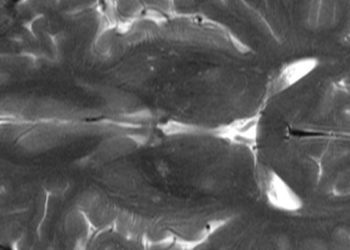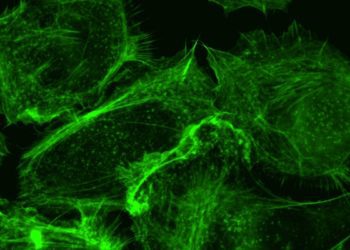Glucagon-like peptide-1 receptor agonists and dipeptidyl peptidase-4 inhibitors associated with similar dementia risk in older adults
1. In this target trial emulation, glucagon-like peptide-1 receptor agonists (GLP-1 RAs) did not significantly affect the risk of dementia compared with dipeptidyl peptidase-4 inhibitors (DPP4is) among older adults with type 2 diabetes.
2. Subgroup analyses suggested that GLP-1 RAs were associated with reduced dementia risk among participants who were relatively younger and non-Hispanic White.
Evidence Rating Level: 2 (Good)
Study Rundown: Studies have suggested that glucagon-like peptide-1 receptor agonists (GLP-1 RAs) may reduce the risk of various forms of dementia, including vascular dementia and Alzheimer’s disease. However, existing observational studies have either assessed dementia risk as a secondary outcome or reported implausibly large reductions in risk. This study aimed to specifically assess the effect of GLP-1 RAs compared with DPP4is on reducing dementia risk in older adults with type 2 diabetes. It was found that there was no significant difference in risk of dementia onset or diagnosis between GLP-1 RA users and DDP4i users after over two years of follow-up. However, subgroup analyses suggested that GLP-1 RA use was associated with a statistically significant risk reduction among younger and non-Hispanic White patients. Use of GLP-1 RAs was also associated with a significant reduction in risk of death. The generalizability of this study was limited a short follow-up duration, the use of a dementia algorithm with low sensitivity, and a lack of consideration for dose-response relationship or treatment discontinuation. Nevertheless, this study found that GLP-1 RAs were not associated with greater reductions in dementia risk as compared to DPP4is.
Click to read this study in AIM
In-Depth [prospective cohort]: This target trial emulation aimed to assess the effectiveness of GLP-1 RAs compared with DPP4is in reducing the risk of dementia diagnosis among older adults with type 2 diabetes. Participants were derived from a 20% random sample of Medicare fee-for-service beneficiaries enrolled in Medicare Parts A, B, and D. Eligibility criteria were age 66 years or above, a diagnosis of diabetes, use of metformin but no other antidiabetic medications within the previous 6 months, no prior dementia diagnosis, and a clinician-determined need for GLP-1 RA or DPP4i initiation. The primary outcome was clinical onset of dementia, defined as 1 year before dementia diagnosis, while a secondary outcome was incident diagnosis of dementia. An initial sample of 14,295 participants (2418 GLP-1 RA users and 11,877 DPP4i users) was obtained; GLP-1 RA users were more likely to be younger, be non-Hispanic White, have various comorbidities, and lack Medicaid coverage. This sample was matched based on propensity score into a GLP-1 RA group (n = 2418) and a DPP4i group (n = 4836); this cohort had a mean age of 71.0 years (standard deviation, 5.0) and was 55.0% female. Median follow-up was 1.89 years (interquartile range [IQR], 1.45 to 2.48 years) in the overall cohort. Clinical onset of dementia occurred in 96 (4.0%) GLP-1RA users and 217 (4.5%) DPP4i users. The estimated 30-month risk difference (RD) was -0.93 percentage points (95% CI, -2.33 to 0.23 percentage points), and the estimated risk ratio at 30 months was 0.83 (95% CI, 0.61 to 1.05). Use of GLP-1 RAs also did not significantly affect the estimated 30-month risk in dementia diagnosis compared with DPP4i use (RD, -0.01 percentage points [95% CI, -1.19 to 0.95 percentage points]; risk ratio, 0.99 [95% CI, 0.80 to 1.19]). In subgroup analyses, risk ratios were 0.64 (95% CI, 0.46 to 0.93) for patients younger than 75 years and 0.78 (95% CI, 0.56 to 0.98) among non-Hispanic White patients. During follow-up, 49 (2.0%) GLP-1 RA users and 155 (3.2%) DPP4i users died; this yielded a 30-month estimated risk difference of -1.37 percentage points (95% CI, -2.77 to -0.21 percentage points) and a 30-month estimated risk ratio of 0.69 (95% CI, 0.45 to 0.95). Overall, this study suggested that GLP-1 RAs generally did not significantly affect the risk of dementia onset or diagnosis compared with DPP4is.
Image: PD
©2025 2 Minute Medicine, Inc. All rights reserved. No works may be reproduced without expressed written consent from 2 Minute Medicine, Inc. Inquire about licensing here. No article should be construed as medical advice and is not intended as such by the authors or by 2 Minute Medicine, Inc.








